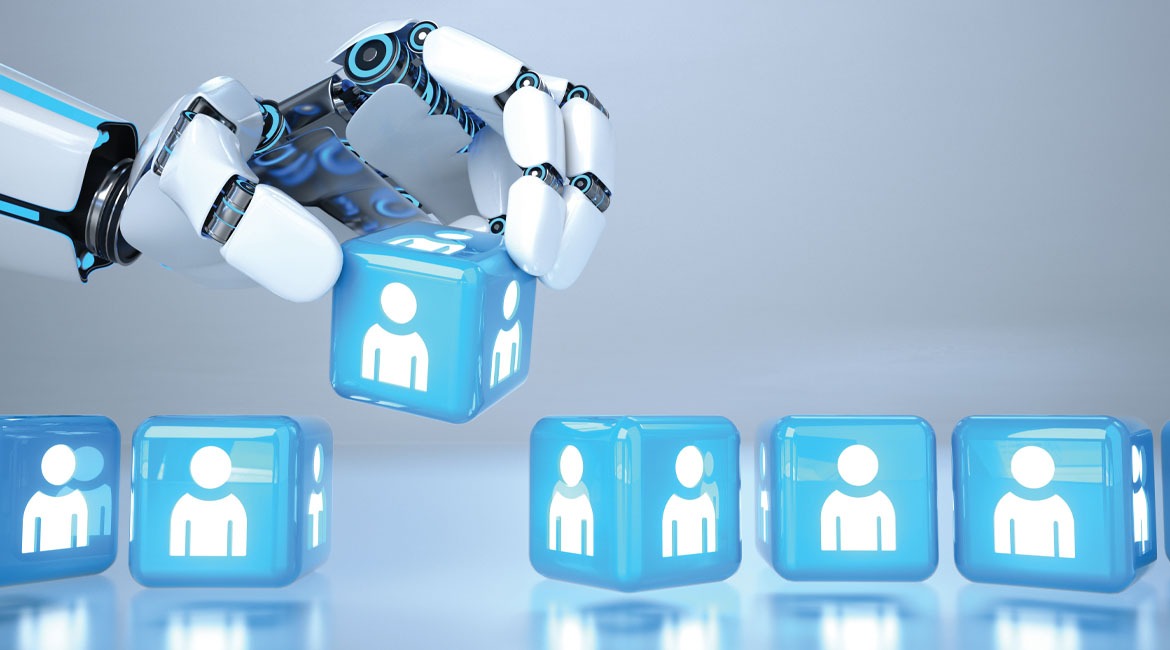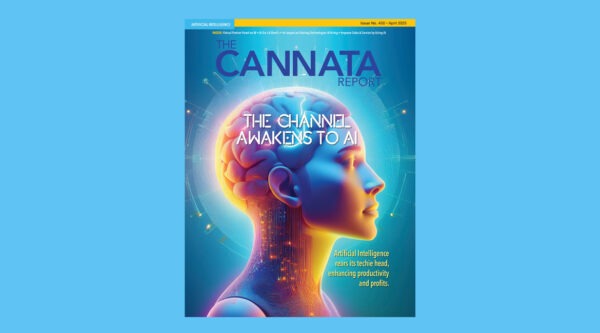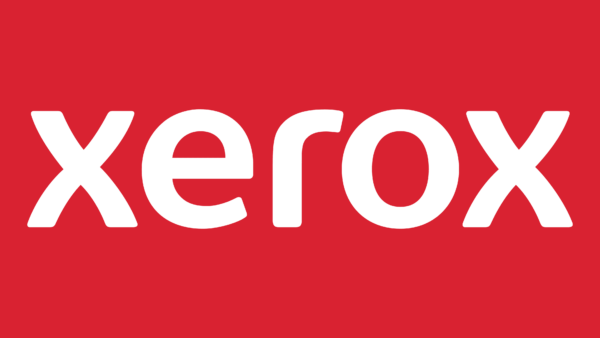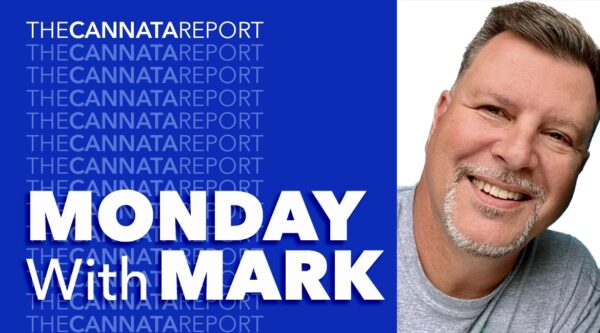If hiring and retention represent an ongoing challenge for office technology dealers, can artificial intelligence alleviate this challenge?
No matter where you look, there are high expectations of AI’s capabilities, so why not leverage it to identify the ideal candidate? More companies and job recruiters increasingly use AI to streamline the hiring process, improve efficiency, and identify the best candidates.
Research from SHRM (Society of Human Resource Management) found that one in four employers use artificial intelligence to support HR-related activities. At the time of the report’s release (February 2024), most organizations had started using AI in the previous year. Most have 5,000 or more employees and are in the technology, finance, and information industries.
Talent acquisition is the primary reason (64%) for adopting AI, followed by learning and development (43%), and performance management (25%). According to SHRM, 65% of HR professionals are using AI to help generate job descriptions, 42% are using it to customize job postings, and nearly 33% to review or screen applicant résumés. The benefits are time savings, increased efficiencies, the ability to identify the leading candidates, and reduced recruitment costs.
According to a recent article in Barron’s, Chipotle Mexican Grill is preparing for its busy season by hiring 20,000 new employees with the help of AI. It uses a bot called “Ava Cado.” It’s a virtual assistant that engages with applicants, answers their queries, schedules interviews, and sends job offers. AI reportedly reduces the time from application to onboarding from 12 days to four. As a result, Chipotle’s application completion rate increased to over 85%. That’s great for Chipotle, but what about average office technology dealers? Are they in positions to leverage AI? We’ll answer that shortly, first let’s examine how organizations use AI for recruitment.
1. Résumé Screening and Candidate Matching
- AI-powered Applicant Tracking Systems (ATS) scan résumés and rank candidates based on keywords, experience, and qualifications.
- Machine-learning algorithms help match job descriptions to applicants with relevant skills and experience.
2. Chatbots and Automated Communication
- AI chatbots interact with candidates, answer common questions, and schedule interviews.
- Some chatbots conduct initial screenings by asking predefined questions and assessing responses.
3. Predictive Analytics for Hiring Decisions
- AI analyzes past hiring data to predict which candidates will likely succeed in a role.
- This helps companies make more data-driven decisions rather than relying solely on human intuition.
4. Video Interview Analysis
- AI evaluates video interviews by analyzing facial expressions, tone of voice, and speech patterns. Some AI tools use these non-verbal cues to assess personality traits and cultural fit.
5. Diversity and Bias Reduction
- AI can help reduce unconscious bias by focusing on skills and qualifications rather than personal information.
- Some platforms anonymize résumés by removing names, gender, and other identifiers to promote fair hiring.
6. Automated Skill Assessments and Testing
- AI-driven tests measure candidates’ skills in coding, language proficiency, and cognitive abilities.
- AI can adapt assessments in real time based on candidate responses.
7. Employee Retention and Workforce Planning
- AI helps predict employee turnover by analyzing work patterns, engagement levels, and feedback.
- Companies use AI-driven insights to improve retention strategies and workforce planning.
8. Sourcing Passive Candidates
- AI scrapes job boards, LinkedIn, and other platforms to find candidates who are not actively job hunting but may be a good fit.
- Automated outreach tools help recruiters connect with these potential hires.
AI Recruitment Tools for SMBs
AI-powered recruitment software is not limited to large corporations. Many solutions cater to small and medium-sized businesses (SMBs) as well. And last time I looked, many office technology dealerships would be considered SMBs. While enterprise-level companies like Unilever and Goldman Sachs use AI extensively, there are scalable and affordable AI recruitment tools that SMBs/office technology dealers can leverage. With cloud-based and subscription-based pricing models, these businesses can now leverage the same AI-driven efficiencies as larger organizations.
According to ChatGPT (of course I’m going to consult with AI when writing about AI), if you’re a small to midsize office technology dealership with high turnover in sales, the best AI recruitment tool for you should:
- Identify quality sales candidates (experienced or entry level)
- Screen and rank candidates efficiently to reduce turnover
- Automate repetitive hiring tasks so your team can focus on engagement
- Improve candidate experience to attract top talent
Here are some AI-powered HR programs recommended by ChatGPT.
HiredScore
- Initially adopted by large enterprises, HiredScore also offers solutions for mid-sized businesses looking to improve hiring efficiency.
- SMBs can benefit from AI-driven candidate scoring and automation to streamline hiring processes.
Zoho Recruit (Popular with SMBs)
- AI-powered applicant tracking system (ATS) that automates candidate sourcing, résumé screening, and interview scheduling.
- Zoho Recruit is designed for both SMBs and recruitment agencies looking for cost-effective AI solutions.
SmartRecruiters (Scalable for SMBs & Enterprises)
- An AI-driven recruiting platform that allows small businesses to automate hiring while maintaining a personalized candidate experience.
- Features include AI-driven candidate recommendations and automated workflow management.
Paradox AI (Olivia the Chatbot)
- Used by businesses of all sizes, from startups to enterprises.
- Olivia, the AI chatbot, helps with candidate screening, scheduling interviews, and answering job-related queries, reducing the workload for SMB recruiters.
Pricing for these solutions ranges from $15 per user per month to $39 per month for small teams, although most AI-powered HR solutions cost $100 to $500 a month. Paradox AI also offers custom pricing. However, these tools are just a starting point; don’t limit yourself to ChatGPT’s recommendations. Full disclosure, I received more recommendations than these, but after investigating the other options, I removed them from the list. Do your research, dig deeper into these tools, and explore other options.
Ready or Not
At the risk of over generalizing, historically, most dealerships have not been on the cutting edge of adopting new technologies in their organizations. However, as a younger generation of leaders emerges and the hype around AI soars to new heights, it’s not a stretch to predict that AI-powered recruitment tools will find a place in some of the more progressive dealerships.
Key Findings on AI Use in HR
- Nearly one in four HR professionals are concerned that AI will lead to job displacement at their organization. Yet, HR professionals who work at organizations that use AI are 16 times more likely to say that AI is transforming existing jobs (32%) rather than displacing jobs (2%) at their company.
- The top three areas where organizations are using AI to support HR-related activities include recruitment, interviewing, and hiring (64%), learning and development (43%), and performance management (25%).
- Among organizations using AI to support recruiting, interviewing, or hiring, nearly 2 in 3 use AI to help generate their job descriptions.
- Among organizations that use AI to support recruiting, interviewing, or hiring, nearly 9 in 10 use AI to save time or increase efficiency, allowing HR to prioritize tasks that require human intelligence.
- Among organizations using AI to support HR-related activities, 2 in 5 are concerned about the security and privacy of data used by AI tools.
- A lack of knowledge about what AI tools would best fit their needs (42%) is the top reason why organizations haven’t started using AI to support HR-related activities, followed by a lack of resources to audit or correct AI algorithms (41%) properly and concerns that AI lacks the human touch (40%).
Source: SHRM
In the Pipeline
At the 2024 Executive Connection Summit, Kingston Training Group introduced an AI-powered training program for office technology dealer sales reps. “The dealer community was not ready for it,” acknowledged Kate Kingston, president of Kingston Training Group. “I put it out there. I worked with a great company called Sell Me This Pen. They built an AI model. It worked. I gave it free to several dealerships, but their reps were not really committed to practicing. We were before our time. But it doesn’t mean that there isn’t a place for it.”
That experience hasn’t discouraged Kingston. She is currently working with West McDonald of GoWest.ai and Michael Cozzens, on an AI-powered recruiting tool that she said will change the face of hiring successful sales executives with a propensity and skill base for prospecting using AI. “We want folks who will come out of the gate with the hunger and raw skill to prospect,” said Kingston. “There’s more skills that we need to be identifying and we’re going to be using an AI tool to do that.” The projected launch date is Q3 of 2025.




